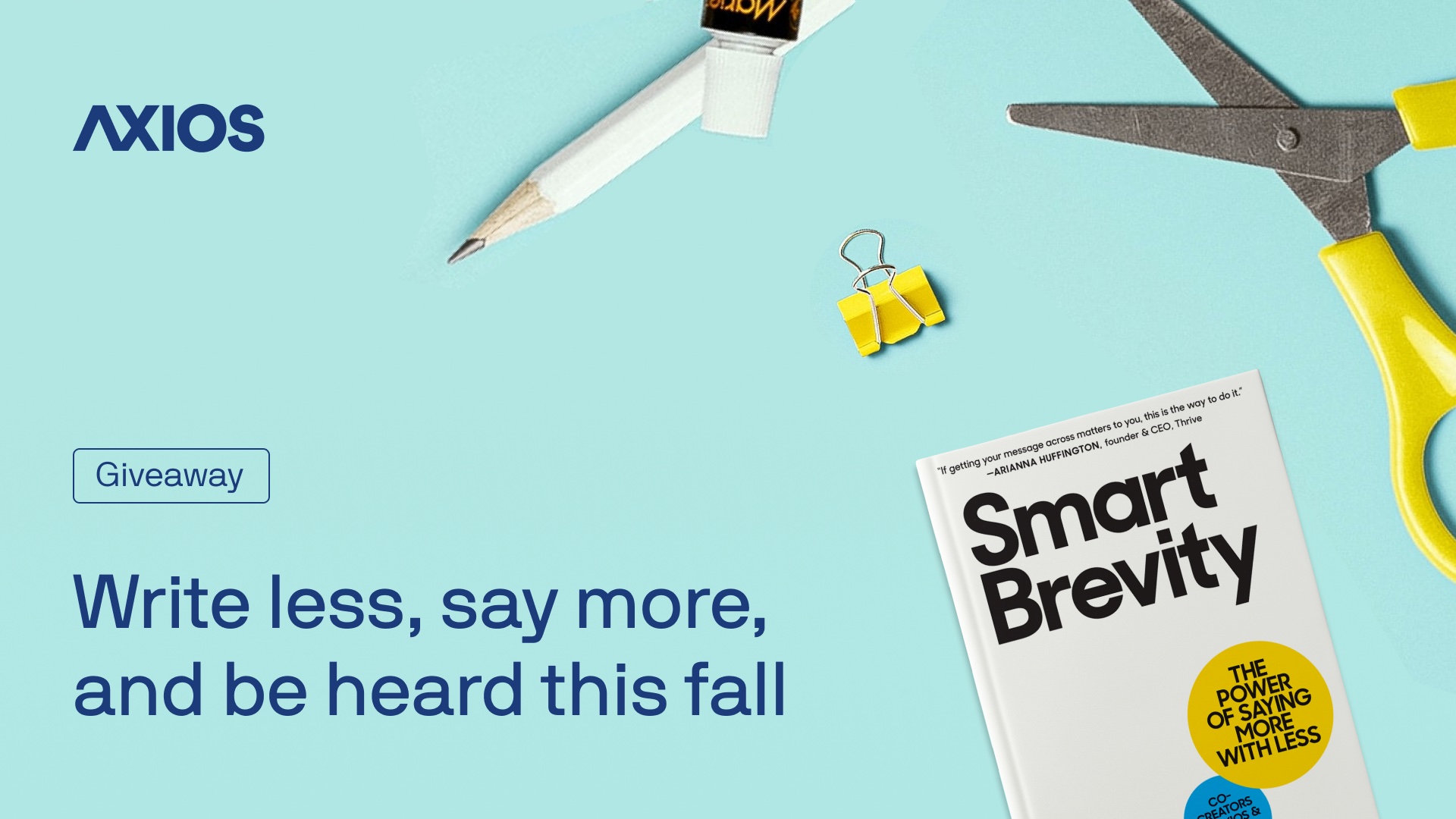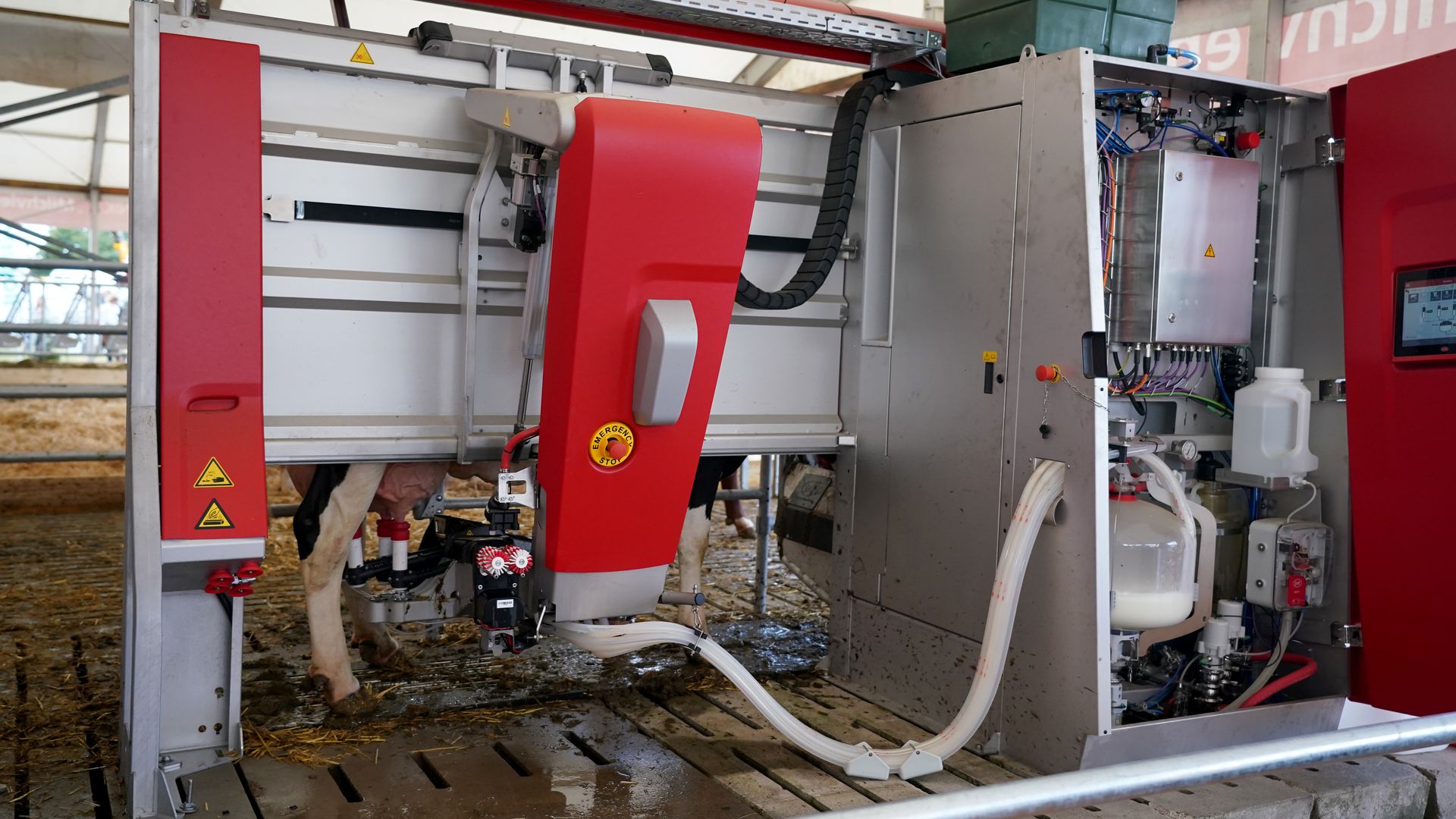| | | | | | | | | | | Axios What's Next | | By Joann Muller, Alex Fitzpatrick and Jennifer A. Kingson · Sep 02, 2022 | | Alex here. I was initially skeptical of the recent changes to electric vehicle tax credits, but given the evidence, I'm coming around to the idea that they'll spark a domestic battery supply chain. - Meanwhile, ideas like the one Joann wrote about today will help automakers prove that their vehicles qualify.
Today's Smart Brevity count: 933 words ... 3½ minutes. We apologize for the delay this morning due to technical issues. | | | | | | 1 big thing: Battery passport, please |  | | | Illustration: Allie Carl/Axios | | | | If automakers want their electric cars to qualify for newly revised federal tax credits, they must be able to certify the provenance of their batteries — potentially through the use of a "battery passport," Joann Muller reports. Why it matters: Strict supply chain requirements attached to the Inflation Reduction Act's restructured electric vehicle (EV) tax credits were meant to catalyze domestic manufacturing and bolster U.S. energy independence. - A rising percentage of critical minerals must be mined or processed in the U.S. or a trading partner, for example, for a vehicle to qualify. None of the materials can come from "foreign entities of concern," like China or Russia.
- Tax credits can lower EVs' effective price, thus boosting adoption.
Yes, but: Tracing battery minerals from the mine, through multi-stage processing and, eventually, recycling is a huge challenge that many experts worry could end up slowing EV adoption. - "When you're talking about elements on the periodic table at the beginning of your supply chain, it's got to be very difficult to track that all the way to your product," Sam Fiorani, vice president at AutoForecast Solutions, tells Axios.
What's happening: One company, Circulor, already uses blockchain technology to help carmakers like Volvo and Tesla trace their supply chains to avoid child labor and track carbon emissions. - The U.K.-based company is now working with a German consortium to develop standards for a so-called battery passport that would track critical minerals and give batteries a UPC-like "digital identity."
How it works: Tracing battery minerals is similar to tracing the ingredients in a cake, Circulor CEO Douglas Johnson-Poensgen explained in an interview. - Nickel sulfate mined in Australia, for example, would be weighed and placed in a bag that's given a digital identity. "We know this in the supermarket as the barcode on a can," he said.
- The nickel would then be shipped for processing alongside other materials like cobalt and manganese, in labeled batches, similar to large-scale food processing.
- The nickel is eventually turned into a black powder, and then a slurry, which is coated onto copper foil to make key components for battery cells. Those cells are then packed into modules for a car's battery pack, which is linked to its vehicle identification number.
- At the end of its life, the battery will be removed from the vehicle and used for energy storage, or recycled into the ingredients for the next generation of battery cells, preserving its digital history.
What they're saying: "I can create a chain of custody from source to consumption, where all the materials came from, even though those materials are processed and changed many times," Johnson-Poensgen said. Reality check: For now, at least, most EV battery supply chains go through China. The bottom line: Until the U.S. builds its own domestic battery supply chain — a work in progress that's beginning to accelerate — tracing will only prove that most of today's EVs won't qualify for a tax credit under the IRA. Share this story. |     | | | | | | 2. People are losing trust in everything but business |  Data: Edelman Trust Barometer; Chart: Jared Whalen/Axios Most people trust businesses despite falling confidence in government and media, Edelman finds in a new report shared first with Axios. Why it matters: The report — which surveyed 7,000 employees in seven countries this summer — found a "trust crash" for governments, while employers remain a "bulwark of stability." Another interesting finding: After friends and family, workplaces have become the most important source of community — ahead of neighbors and religious organizations. Yes, but: Most respondents said businesses need to do more to address climate change, economic inequality and other pressing issues. Share this story. |     | | | | | | 3. The kids aren't alright |  | | | Illustration: Aïda Amer/Axios | | | | Reading and math scores for elementary school students plunged during the first two years of the COVID-19 pandemic, Axios' Erin Doherty reports. Why it matters: The findings from the National Assessment of Educational Progress lay out the extent to which the pandemic devastated learning outcomes for America's students — particularly for those most vulnerable even before the outbreak. Driving the news: The results showed a 7 percentage point drop in math scores among 9-year-olds and a 5 point drop in reading scores. - The tests were administered from January to March in 2020 and 2022.
By the numbers: Top-performing students showed a 3 percentage point drop in math scores, while lower-performing students' scores fell by 12 points. - Black students' math scores fell 13 points, compared to a 5 point drop among white students.
Between the lines: Of the 70% of test takers who said they learned remotely last school year, higher performers had greater access to resources more often, including a desktop computer or a quiet place to work. Read the rest. |     | | | | | | A message from Axios | | 🏆 Win the race for attention this fall | | |  | | | | Refer your friends to Axios and enter for a chance to win a copy of our upcoming book, Smart Brevity, and an Amazon gift card. You'll be ready to write less, say more, and be heard. Start referring today. | | | | | | 4. 📸 Milk, anyone? |  | | | Photo: Marcus Brandt/picture alliance via Getty Images | | | | A cow is seen getting tended to by the Lely Astronaut A5 milking robot at the Norla Rendsburg agricultural fair in northern Germany. Lely, a Dutch company, has been making agricultural tech since the 1940s. - It pitches the A5 as a way for dairy farmers to make the milking process more efficient while reducing stress on cows, thereby improving their health — and their milk.
|     | | | | | | 5. Artemis I, take two |  | | | The SLS rocket and Orion capsule awaiting launch. Photo: Bill Ingalls/NASA via Getty Images | | | | NASA will try again tomorrow to launch Artemis I, the first flight of its Space Launch System (SLS) rocket and Orion crew capsule in a new program meant to return humans to the Moon sometime this decade. Why it matters: Artemis is a high-stakes program for NASA, Axios' Miriam Kramer writes. If it fails, it could force a major rethink of the agency's ambitions. How to watch: NASA is live-streaming the launch at NASA TV. - The launch window begins at 2:17 p.m. ET Saturday.
Yes, but: The uncrewed mission could get scrubbed once again — the first attempt was called off earlier this week amid engine troubles. |     | | | | | | A message from Axios | | 🏆 Win the race for attention this fall | | |  | | | | Refer your friends to Axios and enter for a chance to win a copy of our upcoming book, Smart Brevity, and an Amazon gift card. You'll be ready to write less, say more, and be heard. Start referring today. | | | | A hearty thanks to What's Next copy editor Amy Stern. Was this email forwarded to you? Get your daily dose of What's Next by signing up here for our free newsletter. |  | | Are you a fan of this email format? It's called Smart Brevity®. Over 300 orgs use it — in a tool called Axios HQ — to drive productivity with clearer workplace communications. | | | | | | Axios thanks our partners for supporting our newsletters. If you're interested in advertising, learn more here.
Sponsorship has no influence on editorial content. Axios, 3100 Clarendon Blvd, Arlington VA 22201 | | | You received this email because you signed up for newsletters from Axios.
Change your preferences or unsubscribe here. | | | Was this email forwarded to you?
Sign up now to get Axios in your inbox. | | | | Follow Axios on social media:    | | | | | |









No comments:
Post a Comment